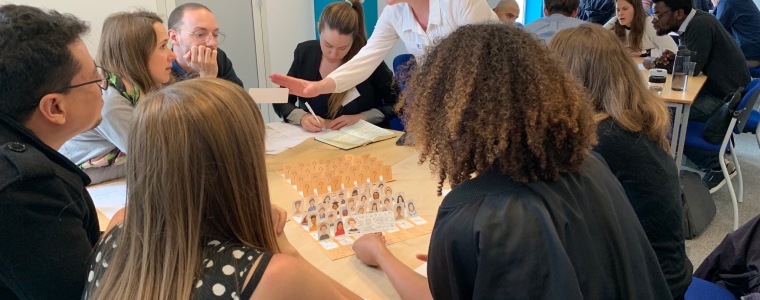Pedagogy. Usually defined as the method and practice of teaching, this word covers many practices in both formative education (generally applied through childhood) and adult education and training. These practices are generally oriented towards a defined valuable outcome such as mastery of specific knowledge, a skill or technique. There is an entire science to the study of human learning which feeds into this term; but much of that science is focused on effective practices suited to the brain development stages of childhood. By contrast, the science of effective learning for adults is less-well understood – but what we do know is that many of our educational traditions are not very effective.
Play. A much more difficult practice to define, play is often associated with freedom and experimentation; a practice not defined by pursuit of a specified anticipated result or outcome, but by a flexible process which is often intrinsically engaging and joyful. Huizinga defined play in the early 20th century as
“a voluntary activity or occupation executed within certain fixed limits of time and place, according to rules freely accepted but absolutely binding, having its aim in itself and accompanied by a feeling of tension, joy and the consciousness that it is “different” from “ordinary life”.
Johan Huizinga (1949) Homo Ludens: a study of the play element in culture, Angelico Press. p28
Although some specialists working on play today consider Huizinga a romantic, he points to one well evidenced anthropological observation. Most cultures allow some sort of play practice to be conducted outside of ‘normal’ expected behaviour occupied by everyday work and life. Some of this play practice is highly serious, like the performance of religious ritual, while other play is definitely not, like when children run around and pretend to be leaves.
What play and it’s derivations such as games or sport offer to pedagogy is an alternative structure for learning than our common traditions. And increasingly, there is a growing body of evidence to suggest it might be a better way to learn.




